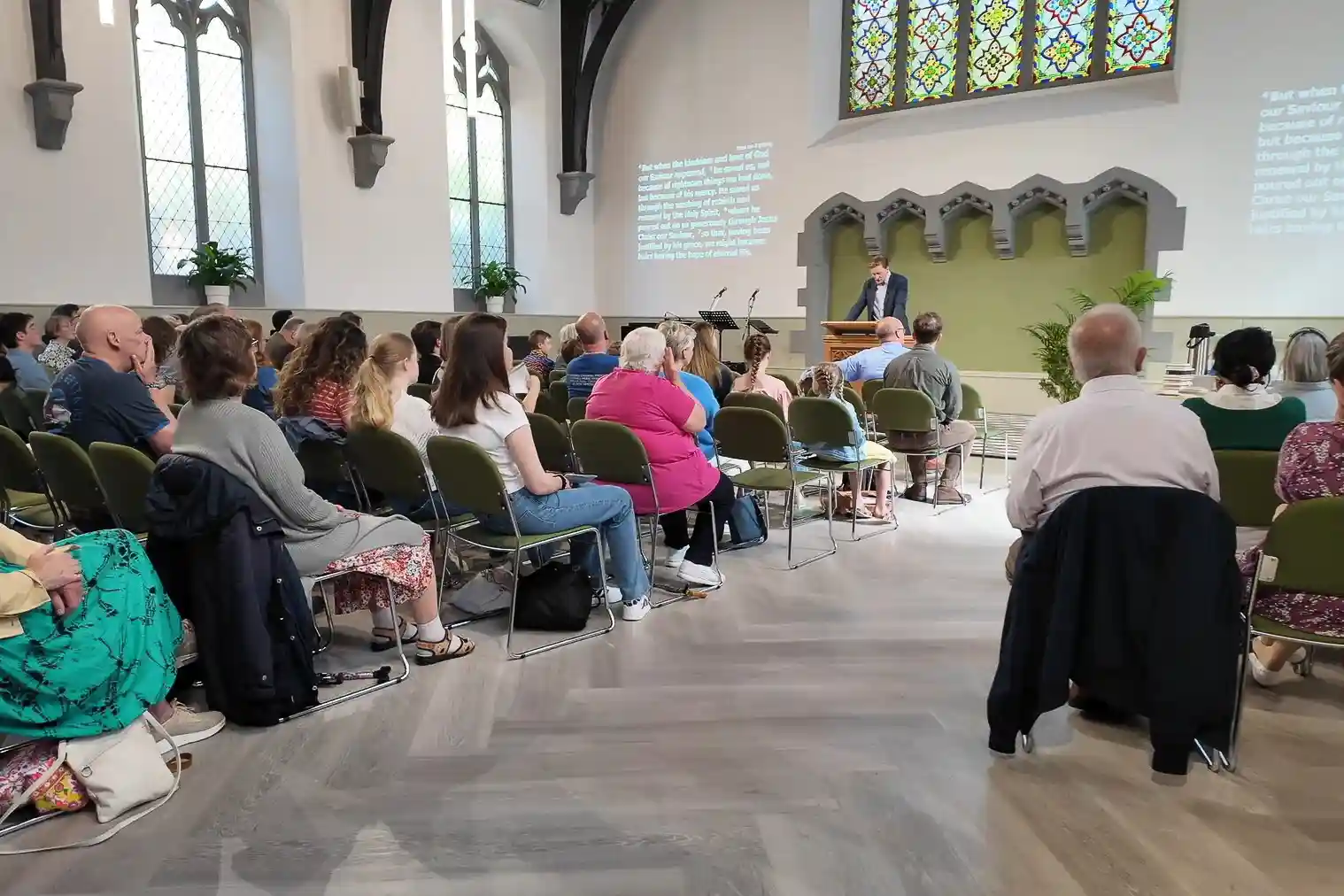The Tapestry of Contextualization

“Contextualization” is one of those big words that most Christians think represents a good thing, even though they may be a bit unclear as to what it actually means. As a concept, contextualization is on the one hand quite simple and straightforward. However, its wider connections and ramifications—both practical and theoretical—are truly complex. The term itself has an interesting background, and unraveling its usage will help us pinpoint some of the nuances of this absolutely crucial missiological reality.
The Term
In North American English, the suffix “-ization” indicates an act, process, or result of making or doing something; compare such familiar terms as “privatization,” “realization,” and “legalization.” Insofar as contextualization is used in reference to the Christian faith, the term therefore means Christianity becoming “contextual,” or appropriate and fitting to its various settings. All such settings for the Christian faith—including downtown Los Angeles, southern Sudan, and Brazilian footballers—have their own particular characteristics, so an almost equivalent term would be “particularization.” Put simply, then, contextualization refers to the “particularization(s)” of the universal Christian faith into individual contexts or settings.
So far, so good. Note again that contextualization is an act, process, or result. For clarity’s sake, for now at least, let’s think of it as a process. To be sure, there are various parties engaged in the act of contextualization; we will come back to that later. One can also point to resulting contextualizations of the Christian faith, although such results are never final because of the dynamic character of the parties and contexts involved. It is better to think of such resulting contextualizations (or “expressions”) of Christianity as snapshots of an ongoing process, whether it be Christian marriage in 21st-century America, articulations of the trinity in the ancient church creeds, worship in the late-19th-century Pacific Islands, 1980s leadership styles in Korean Presbyterian churches, or the churches’ relationships with the state in contemporary Uganda.
As an actual word and focal point of discussion, “contextualization” was coined in the early 1970s. At the time, the term was intended to draw attention to the socio-politico-economic aspects of any situation or context in which the gospel was at work. This was due to the fact that during the 1960s the collective worldwide Church, and missiologists in particular, had become enamored with “indigenization” and its more narrow anthropological focus on such cultural realities as language and traditional customs. Evangelicals, who moved toward consolidating their worldwide identity at Lausanne in 1974, already had concerns about the growing influence of liberation theology and its emphasis on salvation in political and economic terms. Even so, prominent Third World evangelicals from Latin America, Africa, and Asia pointed out the full scope of the Christian gospel, so most evangelicals have now accepted to one degree or another the need for the Christian faith in its entirety to be expressed in ways appropriate to each particular overall context.
The Agents
How one understands the process of contextualization depends in large part on who the primary agents of contextualization are understood to be, a factor noted earlier. One powerful North American evangelical instinct points to the expatriate (subconsciously assumed to be North American) missionary as the one primarily responsible to make the necessary adjustments to the form of the unchanging Christian message he or she brings, as well as to the resulting believers’ lives and practices. After all, this instinct claims, compared to the receivers—who almost always are from non-Christian backgrounds—it is the missionary who not only knows the Bible but also comes from a culture with a Christian heritage. By this scheme, the task of contextualization is daunting to be sure: the missionary has to communicate biblical truths given in ancient cultural forms to a totally different and non-Christian culture, all the while having to resist the temptation to import his or her own, altogether different, cultural norms. Those in the receiving culture help the missionary learn their culture, and God somehow superintends the process, but the idea is that the expatriate Christian emissaries are primarily responsible for contextualizing the faith.
There are at least three reasons, however, why this instinct needs correction. First, it is out of date. That fact alone does not invalidate the concept, but viewing the expatriate missionary as primary is continuous with the pre-World War II image of how missions proceeded from “the West to the rest.” Second, and speaking directly to the matter, God and the receiving agents are primary, not the expatriate emissary. The missionary (of whatever cultural background) is essential to bringing the gospel to those settings that have not yet heard it. However, what is of basic importance is God’s initiative in communicating to people in their own languages and contexts. He speaks, and people hear in their heart languages, and it is the dynamic communication process—contextualization—that occurs between God and indigenous people that is primary. That critical God-indigenous people dynamic makes the missionary more like a third-party catalyst. Third, placing the missionary at the center of the contextualizing process tends to downplay the contextualized, particular character of the Christianity that he or she embodies and represents. The truth is that all expressions of the Christian faith bear the marks of their contexts. Moreover, no Christians embody the final and universal form of the faith, nor do any of us enjoy a vantage point outside of contextual realities that can dictate to others what is complete and normative.
Translatability
Some evangelicals will start to feel a bit queasy at this juncture, so at this tricky point we need to consider Christianity’s basic trait of cultural and contextual translatability. God as Creator is wholly separate from His creation: He is transcendent. Yet God has remained involved with His fallen creation, preeminently through entering the world as a concrete man, becoming particularized or contextualized as Jesus of Nazareth. At the same time, God’s Word, which centers and focuses on Jesus, speaks to all people in their particular languages as the Bible is (re-)translated again and again into new (and changing) languages. Jesus, thus, comes close to all kinds of people, to every tribe, tongue, and nation. He is not a provincial or tribal Savior, but He is the covenant Lord and Redeemer of all the earth. Together with His translated Word, Jesus crosses over cultural and generational boundaries and enters new contexts, shouldering His way into the beliefs of all kinds of people. Unlike Islam, for example, which brings into alien settings an enduring Arabic Qur’an and foundation of life, Jesus and His Word are translated into ever new settings, whereby people come to worship and follow Him within the terms and contours of their own languages and contexts.1
Putting this translation process in a more explicitly theological way, the triune God speaks to particular people in their own mother tongues by His Word and Spirit, as well as through His emissaries. Because this God speaks in people’s particular languages—whether English, Hebrew, Greek, Swahili, or any other human language—He shows Himself to be their/our God as well as the God of all peoples, not some foreign tribal deity. He transforms peoples and their settings from the inside out, so to speak.2 To put it from a Christian perspective spoken within any particular linguistic and cultural context, since this God speaks our language and knows us intimately, He knows our past, pre-Christian heritage as well. We, and all other peoples, have always been responsible to this Creator, Covenant Lord. Our sin has been blinding us, the evil one has been deceiving us, but God has been wooing us to grope for Him and His truth. Now that He has brought or translated the good news of Jesus into our context, He is guiding the whole contextualizing process in which He grants faith and growth, shaping our understanding of the Christian faith and reforming our lives into Christlikeness.
Inherent to this translatability of God’s living and written Word is a tension between the universality and particularity, or “contextuality,” of the Christian faith. On the one hand there is one Lord, one faith, one baptism for Christianity. It is the same God who is the God of all His people around the world and down through the centuries. In tension, however, with this universalizing side of Christianity is the homing drive of the faith, the push toward being our faith in our God in our particular language within our setting. God’s universality and transcendence help protect such a homing instinct from overly domesticating (yet another almost equivalent term for “contextualizing”) the faith into a syncretistic alliance with local particularities to a point of rendering Christian distinctives unrecognizable. In that sense, the Christian faith should always have a pilgrim character to it, such that it maintains a measure of counter-cultural teaching and practice. On the other hand, God’s immanence in particular contexts—supremely exemplified in the Incarnation—helps protect the inherent transcultural, universal side of the Christian faith from making it foreign and irrelevant to, or quarantined away from, any facet of any particular context. This need for relevance and applicability is why contextualization is such an absolutely crucial missiological reality, as stated at the outset. A healthy contextualization cultivates a prophetic involvement of God’s people within their particular contexts, avoiding the twin extremes of irrelevant quarantine and syncretistic localization. 3
Redemption Applied
It is important to note as well that this universal-particular, transculturalization-contextualization dynamic is not something just for settings where Christianity is relatively new. For an English-speaking, early 21st-century, North American context, that means that the “missiological” reality of contextualization is always taking place here as well, not just on the (foreign) field. Whereas pioneer, unreached sectors of the world’s peoples have their own unique place in what “missions” involves, insofar as God’s world mission is intent on comprehensively redeeming all of the earth, the “mission field” is still everywhere, including here. Full redemption of any and all contexts will only come at the eschaton, so contextualization will continue to be an ongoing reality in whatever setting the Lord’s people find themselves.
Full redemption of the entire world and its particular contexts—worked out in ongoing processes of contextualization—involves a spectrum of dimensions of belief and practice: worldview, cognition, linguistic forms, behavior, communication, social structure, and decision-making processes.4 How the Christian faith looks in each of these interrelated dimensions will of course vary from context to context—although the variance will not go beyond recognition of a common Christian identity. Thus, for example, a Christian worldview will include, among other marks, God as Creator, the ultimate place of Jesus of Nazareth, and the central role in the world of the Holy Spirit. It becomes problematic, however, to speak of the Christian worldview, since worldviews are always to be found among particular Christians in particular contexts—including biblical worldviews. The same universal-particular dynamic is true of other dimensions of faith and practice as well. Thus, while Christian decision-making is to exemplify Spirit-led mutual submission, to speak of the Christian decision-making process moves into the danger area of making universally normative a particular, contextual reality.
A Closing Image
The manifestations of God’s redemption throughout the earth and world history are like countless braids interwoven in one grand tapestry. Each braid in turn has three strands: sanctification of God’s people wrought by the Holy Spirit, the corresponding discipleship of God’s people as they follow Jesus’ example and teachings, and the contextualization of the covenant community’s sanctified obedience in particular situations. The strands must not be unraveled away from each other, lest the entire tapestry become skewed and unbalanced. God is ever working among His people throughout the entire earth. How we concretely and contextually manifest our obedience to His gracious covenantal dealings with us is part of the worldwide venture of faith, guided by His Word and Spirit.
Rev. Dr. Nelson Jennings and his wife, Kathy, are former MTW missionaries to Japan. At the time he wrote this article, he was associate professor at Covenant Theological Seminary.
Note: This article was originally published as “The Tapestry of Contextualization,” in Mission to the World, comp. and ed., Looking Forward: Voices from Church Leaders on Our Global Mission (Enumclaw, WA: Winpress Publishing, 2003), 24-30.
__________________________________
[1] Andrew Walls has pioneered much of current thinking and research into the translatability of the Christian faith, e.g., in his The Missionary Movement in Christian History: Studies in the Transmission of Faith (Maryknoll, New York: Orbis Books, 1996).
2 Kwame Bediako has explored this transforming and interpretative role of mother-tongue Scripture within each cultural context in, for example, “Gospel and Culture: Guest Editorial,” Journal of African Christian Thought 2, 2 (December, 1999): 1.
3 I have borrowed this scheme from Lamin Sanneh, Translating the Message: The Missionary Impact on Culture (Maryknoll, New York: Orbis Books, 1989, pp.39-46).
4 David Hesselgrave, “Contextualization that is Authentic and Relevant,” International Journal of Frontier Missions 12, 3 (July-Sept., 1995): 116ff.







